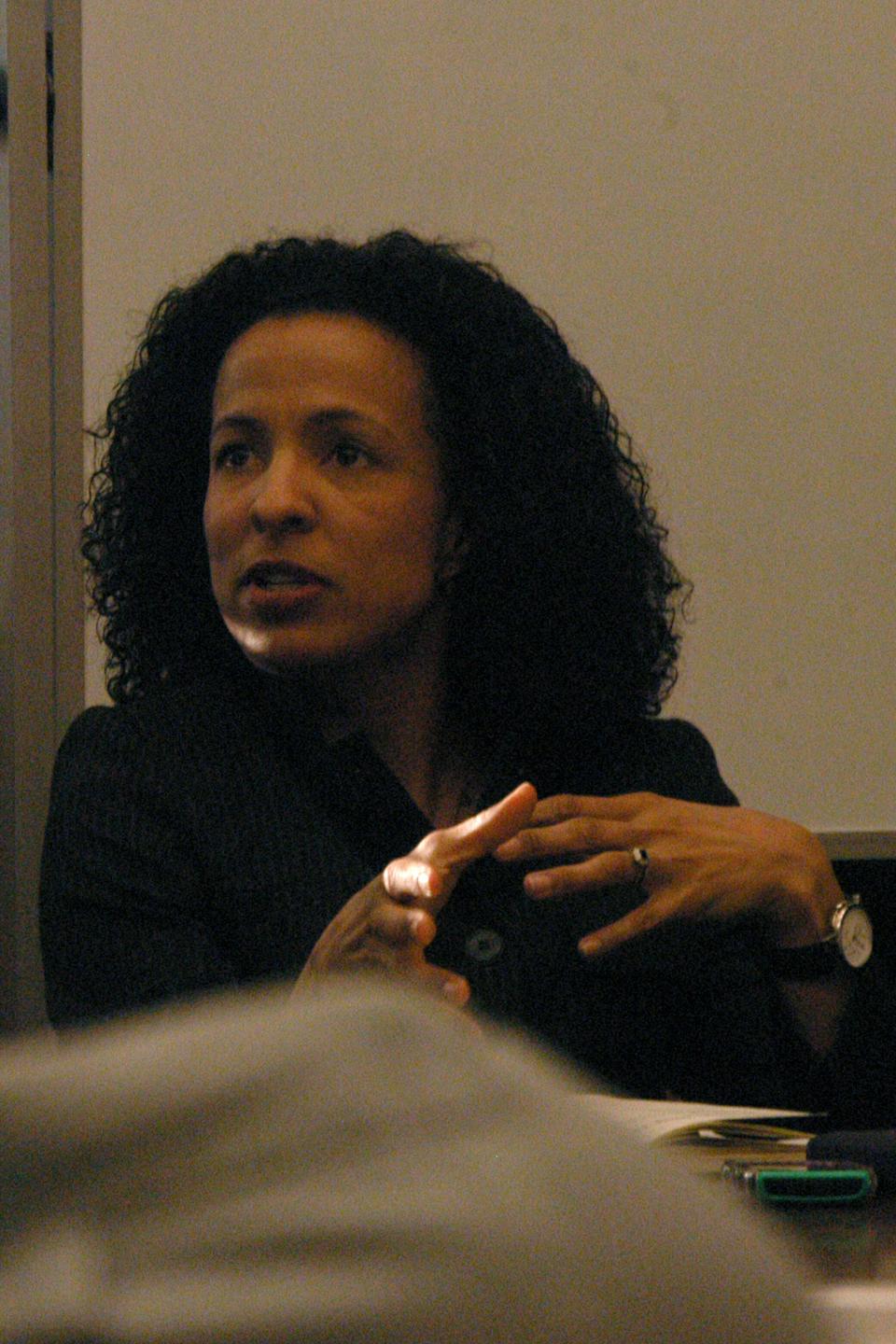
News
When Professors Speak Out, Some Students Stay Quiet. Can Harvard Keep Everyone Talking?

News
Allston Residents, Elected Officials Ask for More Benefits from Harvard’s 10-Year Plan

News
Nobel Laureate Claudia Goldin Warns of Federal Data Misuse at IOP Forum

News
Woman Rescued from Freezing Charles River, Transported to Hospital with Serious Injuries

News
Harvard Researchers Develop New Technology to Map Neural Connections
Young Discusses Race, War, Culture
BC Professor speaks on her research on race, pop culture, and the war on terror

American black men in post 9/11 popular culture are being portrayed as “heroic terror warriors,” according to Boston College professor Cynthia Young, who discussed her research at a talk with students and professors in Robinson Hall yesterday afternoon.
The discussion—which centered around a draft of one of Young’s papers titled “Black Ops and Sleeper Cells: Race, the War on Terror and Popular Culture from Above and Below”—explored how rap music and television shows such as “The Unit” and “Sleeper Cells” manifest changing popular conceptions of blackness and how the media can influence such race issues.
“The Unit” is a popular American TV-show that depicts the work of Delta Force—an elite, ultra-secret special forces unit—that ran on CBS until May 2009.
“Sleeper Cells” is an Emmy-nominated Showtime miniseries that tells the story of so-called sleeper cells, terrorist units that live like ordinary individuals until told to launch a pre-planned attack.
Young, an associate professor and director of the African and African Diaspora Studies Program at BC, said she is interested in “how the Civil Rights legacy is being understood and reframed after 9/11” and why the Bush administration chose to link the “overcoming of black oppression” with the “so-called war with freedom and democracy.”
Young has previously written on the Civil Rights Movement and is currently working on a book project called “Afterburn: Race and Culture After 9/11.”
The paper presented yesterday will be part of this project, which she says will hopefully eventually contain five chapters.
In addition to studying media and popular culture, Young said she also hopes to look at immigration in America and the backlash against Latino immigrants from black groups.
She also said that she would like to examine how Muslims are being portrayed in post 9/11 American society and how they have been affected by accusations of terrorist activity.
In the aftermath of 9/11, Muslim-Americans faced widespread suspicion as the attacks launched by the terrorist group Al-Qaeda were seen as representative of Islam.
Young also took comments on her paper from professors and graduate students.
She said she was “hoping to reach an audience outside of universities” and aiming to write “in a way that was traditionally less academic.”
Audience members suggested she contact more black war veterans, explore popular reaction to the television shows and music discussed in her paper, and also that she address the domestic implications that the wars in Afghanistan and Iraq have had on African American soldiers.
Want to keep up with breaking news? Subscribe to our email newsletter.
